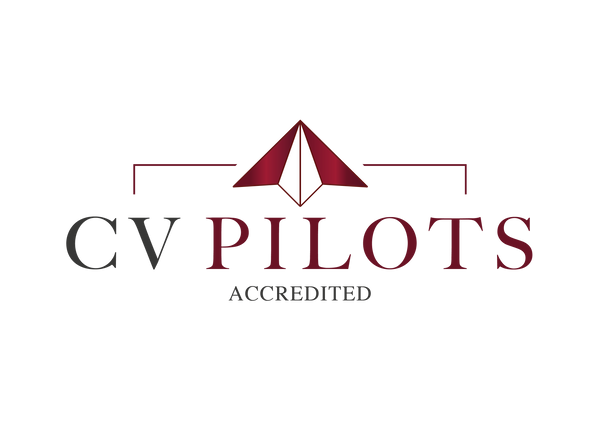
2025 UK Recruitment Trends: What Job-Seekers Must Know
6 Recruitment Trends You Need to Know in 2025 — Recruiter Perspectives
The world of hiring has evolved faster than ever. As we step firmly into 2025, UK recruiters are navigating economic turbulence, AI transformation, and shifting workplace expectations.
If you’re ready to take the guesswork out of job applications and
give yourself a genuine competitive edge, our CV Reviews and
CV Template Bundles are designed to help you stand out in even
the toughest hiring markets.
CV Reviews – Save £60
If you’re not sure your CV is truly working for you, our
Professional CV Review Service provides in-depth, recruiter-level
feedback on content, structure, and ATS compatibility. You’ll receive
a personalised action plan showing exactly what’s holding you back
and how to fix it, so you can apply with confidence. Use discount code
PCVR60 at checkout to save £60 and give your next application the
competitive edge it deserves.
CV Template Bundles – Save £40
Prefer to write your own CV but want a proven framework? Our
CV Template Bundles include an ATS-friendly, recruiter-approved
template, plus our storytelling framework, metrics tracker, CV checklist,
and scorecard - everything you need to create a document that sells
your skills and achievements. Use discount code CVTB40 to get
£40 off and start building a CV that gets noticed for all the right
reasons.
These tools pull back the curtain on the hiring process, cutting
through the smoke and mirrors so you understand exactly what
employers and ATS systems are really looking for
Here’s what’s shaping recruitment today—and how you can stay ahead:
1. Skills Over Degrees: Recruitment Gets Practical
The pandemic-era shift to skills-first hiring has become mainstream. Employers now value hands-on expertise over formal credentials, especially in high-demand sectors like AI and sustainability.
Research shows that between 2018 and mid-2024, the demand for AI-related roles surged by 21%, while traditional degree requirements declined by 15%. Candidates with demonstrable skills in AI received a 23% wage premium—more than the value of most degrees recruiterflow.com+1arXiv+1.
What this means for you: Highlight your specific capabilities. Upload certifications, showcase real projects, and clearly explain how your skills solve business challenges.
2. A Chill in the Market: Fewer Vacancies, More Competition
Recruitment remains sluggish. As of Q2 2025, job applications in the UK dropped by 27% after a strong Q1 Wave. Economic uncertainty continues to weigh heavily. According to Hays, the UK jobs market is now in its longest downturn since 2000, with permanent hire activity flatlining Hunt Scanlon Media+7The Times+7Financial Times+7.
Your approach: Position yourself strategically. Tailor each application to align tightly with the employer’s pain points. Be thoughtful, not generic.
3. AI Everywhere—Yet Human Judgement Still Matters
AI tools are transforming hiring. LinkedIn’s AI "hiring assistant" now handles candidate sourcing, message drafting, and scheduling at scale Forbes+9The Times+9Wikipedia+9. Workday’s acquisition of Paradox integrates conversational AI to enhance candidate experience IT Pro+2Hays UK+2.
But AI isn’t flawless. It may overlook nuance, undervalue soft skills, or introduce bias. Deloitte notes that while candidates increasingly use AI at every stage—from CV generation to interview prep—balancing AI with human insight is essential robertwalters.comLinkedIn Business Solutions.
Your move: Optimise your CV and application for ATS-friendly scanning, but don’t rely on automation. Bring your personality and insights alive in interviews.
4. Human-Centric Recruitment is Gaining Ground
Employers want talent who connect on a deeper level. Human-centric leadership—empathy, inclusivity, and authenticity—is on the rise robertwalters.com. Organisations are realising that psychological safety, transparency, and personal development are key to retention and performance.
Your edge: Don’t just talk tech and results. Show how you’ve fostered team culture, led with empathy, or grown others—even during challenging times.
5. L&D & Flexibility Aren’t Perks—they're Essentials
Professionals now expect daily growth and work flexibility—not just hybrid hours, but compressed workweeks, managerial empathy, and transparent career paths Hays UK. L&D also matters: 74% of professionals are ready to upskill in AI or digital tools Hays UK.
How to stand out: Emphasise your learning mindset and adaptability. Request hybrid working talk in your interviews—and ask about growth support.
6. Talent Attraction Moves from Passive to Proactive
In a tougher market, referrals and internal talent pools are gold. Candidates sourced via referrals are three times more likely to stay long-term Wikipedia. Recruitment firms are embracing CRM to nurture relationships and keep pipelines warm Wave+3tekwissen.com+3signaturerecruitment.co.uk+3.
Your take: Reactivate old connections, ask for referrals, and stay visible on LinkedIn. Comment, share insights, and engage—don't wait for roles to find you.
In Summary
2025’s recruitment landscape demands a blend of adaptability and authenticity. Hiring managers want skilled, empathetic leaders—people who embrace learning, lean into AI, and build connection in remote-first environments.
To make your mark:
-
Lead with skills, not just credentials
-
Tailor your application for today's job market
-
Use AI tools—but don't lose your human voice
-
Show your values and culture-fit, not just your KPIs
-
Active networking and referrals will serve you better than applying cold
Want help translating your strategy into a polished CV, LinkedIn profile, or interview pitch? Just say the word.
To find out more, visit our website www.cvpilots.co.uk If you have any further
questions, you can either book a consultation call with one of our team, or get in touch via email on team@cvpilots.co.uk

